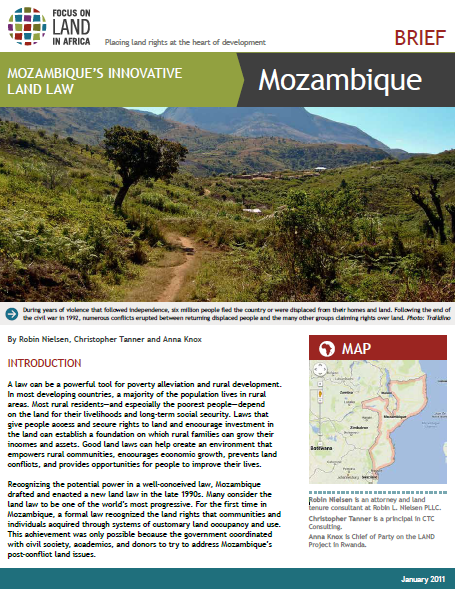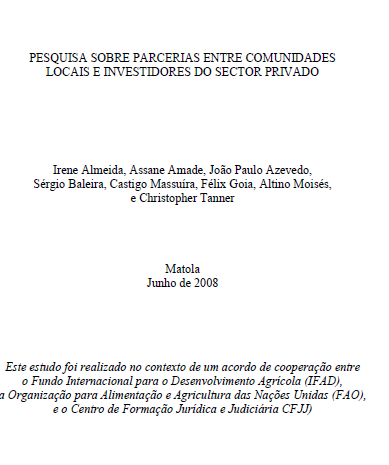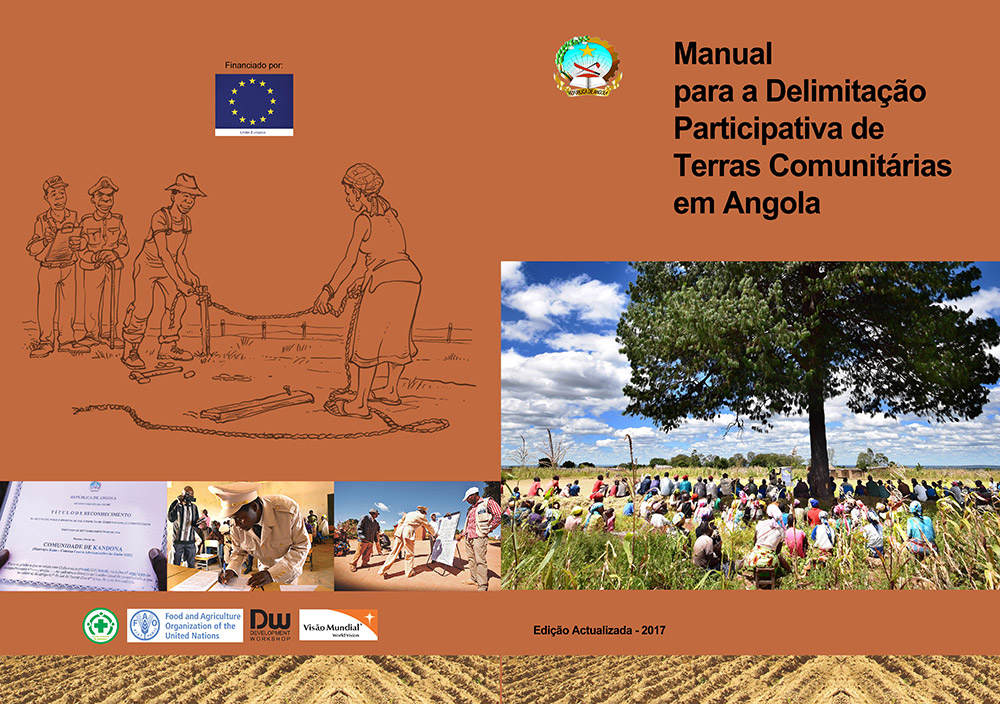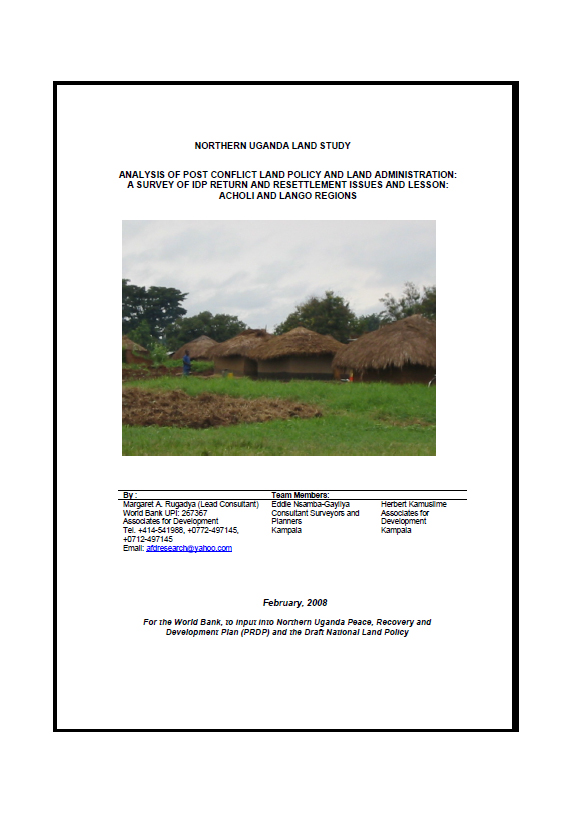Land rights and enclosures: implementing the Mozambican land law in practice
Post-war Mozambique confronted the challenge of reforming land policy and legislation
with an innovative land law that protects customary rights while promoting investment
and development. Most rural households have customarily acquired land rights, now
legally equivalent to an official State land use right. When necessary, they can be proven
by analysing local land management and production systems, resulting in large areas








